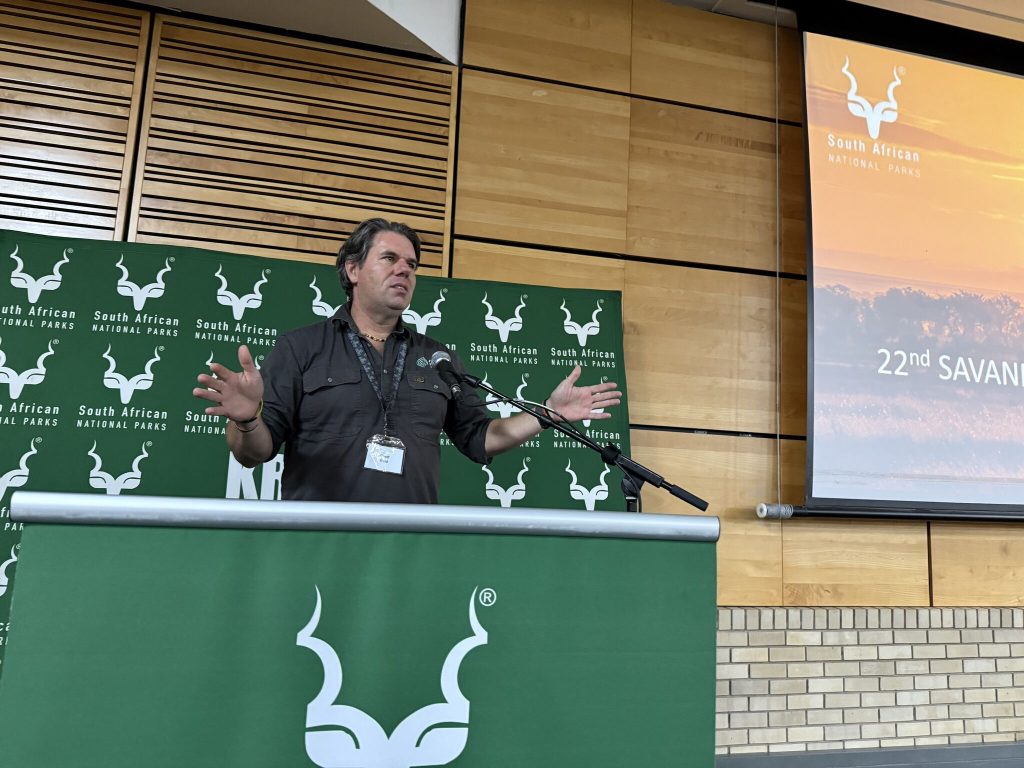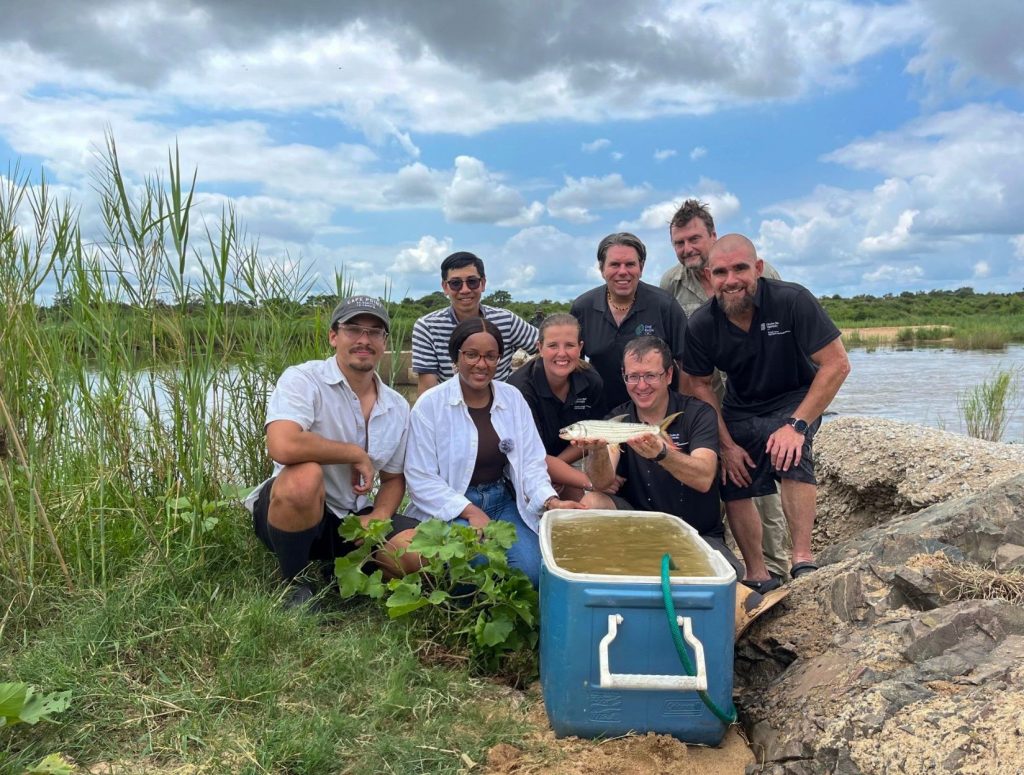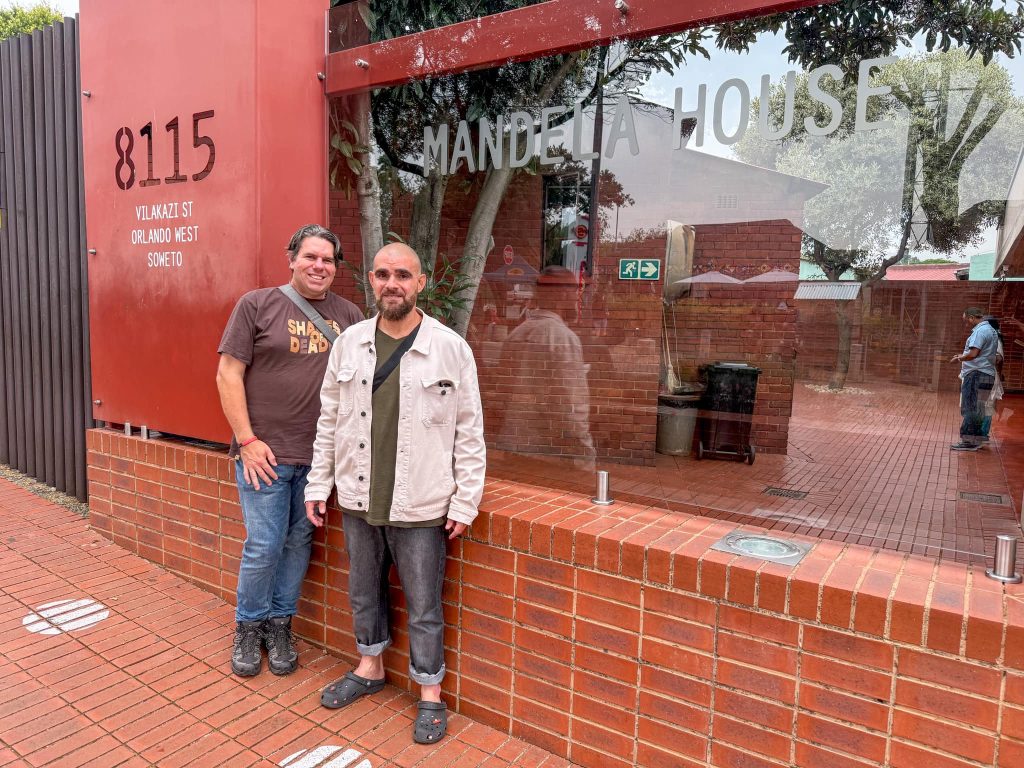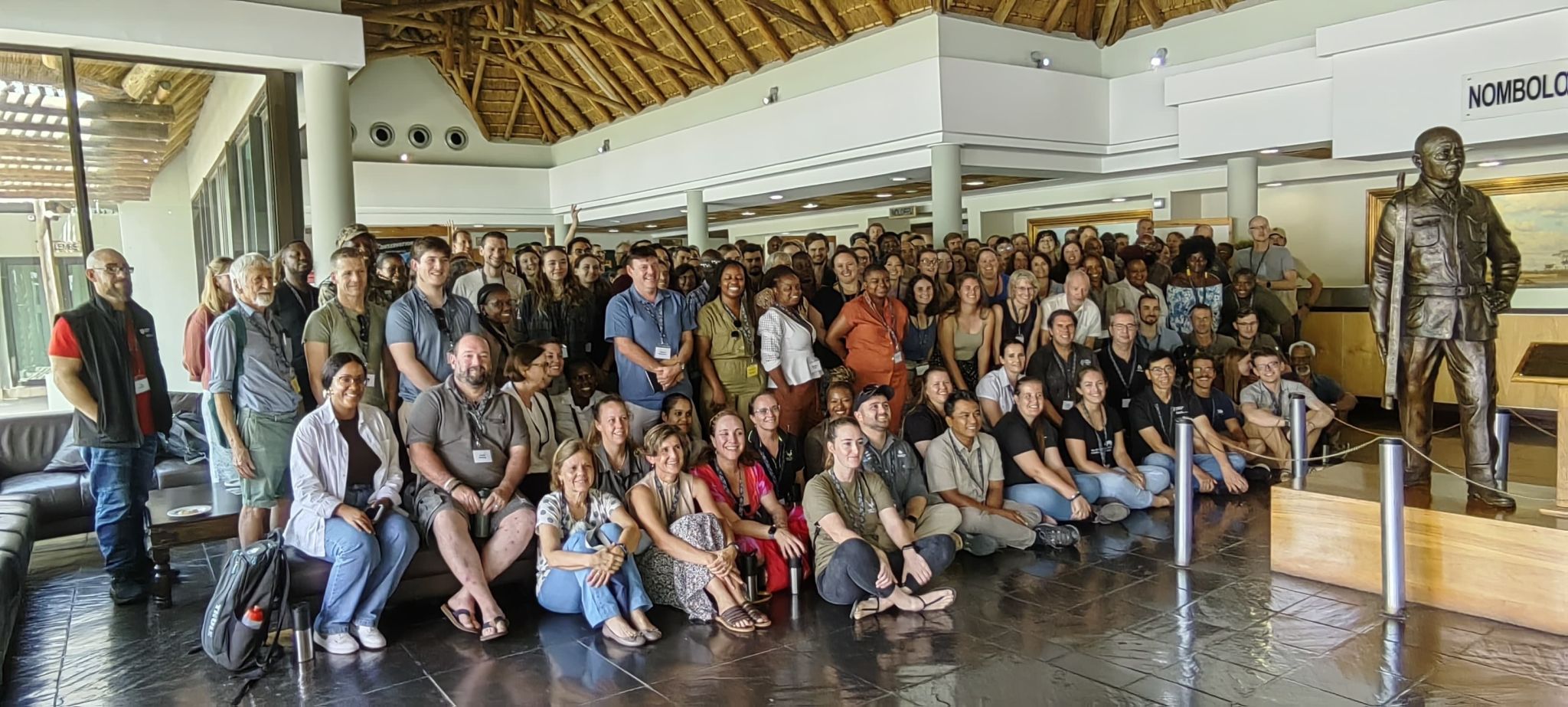First Nations leadership supporting Savanna Science in South Africa
news
Published 02 Apr 2025
Written by Caleb Back
The 22nd Savanna Science Network Meeting (SSNM) in Kruger National Park became an unexpected forum for a critical dialogue: the transformative role of First Nations knowledge in water science and governance. That’s according to First Nations Program Lead Professor Troy Meston and First Nations Engagement Lead Geoff Reid, who represented the One Basin CRC at the conference and underscored this theme. Sparking conversations about First Nations leadership in environmental management, they presented a perspective often overlooked in global scientific discourse.
At the conference, Meston and Reid’s presentations stood out for their emphasis on integrating First Nations knowledge with Western science in the Murray–Darling Basin. Their talks began with an Acknowledgement of Country, a practice unfamiliar to many South African attendees.
“This wasn’t just protocol it was a statement that First Nations stewardship is inseparable from sustainable water management,” Geoff Reid said.
“It was our first opportunity to raise awareness to international audiences the Cultural practices and traditions of First Nations people,” Mr Reid said.
“Highlighting this relationship of First Nations stewardship and caring for Country helped set the scene for the international conference on understanding how we view water in the Basin,” he said.
“First Nations people understand the ‘language’ of rivers—the signs of health, the rhythms of drought and flood.”
“Science alone isn’t enough,” Geoff Reid said.

The CRC’s work highlights a growing recognition: First Nations communities, with millennia of ecological knowledge, offer unique insights into biodiversity, seasonal flows, and drought resilience. In the Murray-Darling Basin, where over 40 First Nations communities hold deep cultural connections to waterways, their exclusion from decision-making has historically led to mismanagement.
Part of the CRC’s mission seeks to rectify this by embedding First Nations leadership in its research—a model that resonated with South African scientists grappling with similar post-colonial challenges.
A striking contrast emerged during the meeting: while Australia struggles to include First Nations in water governance, South Africa has shifted to state-controlled water management post-apartheid, with Black African leaders now steering policy.
“South Africa’s transition shows what’s possible when marginalized communities reclaim agency,” Professor Troy Meston said.
This disparity inspired a proposed collaborative project between the CRC and South African institutions like the University of Mpumalanga (UMP).
“The initiative would study South Africa’s governance reforms to identify pathways for First Nations-led water management in Australia,” Professor Meston said.
“This helped frame questions for us to investigate, looking back on our own history of Basin management,” he said.
“How did South Africa build capacity for leadership? What policy frameworks enabled equitable participation?”
“Answering these questions could help inform Australia’s approach, particularly in training First Nations water scientists—a field where Australia lags behind South Africa,” Professor Troy Meston said.
The launch of Charles Sturt University’s Sustainable African Rivers Initiative (SARI) program during the conference further highlighted synergies. SARI, which focuses on freshwater conservation in Africa benefits from South Africa’s advanced environmental flow monitoring techniques.

“A joint study comparing the Limpopo and Murray-Darling Basins could yield cross-continental innovations, such as adapting Australia’s water allocation models to African contexts—and vice versa,” Professor Meston said.
“Building on existing relationships within the CRC, such as with Charles Sturt University, highlight the strengths of our model – that even in South Africa we still have opportunities to collaborate with each other,” he said.
Beyond the conference, Meston and Reid’s visit to Soweto underscored the parallels between First Nations and South African experiences. The township’s history of apartheid-era displacement and resistance echoed the struggles of First Nations communities. Both groups face legacies of land dispossession and water inequity—yet both have harnessed cultural resilience to advocate for change.

At the Hector Pieterson Memorial, Reid reflected on these shared histories.
“The youth-led Soweto Uprising was a fight for dignity, much like First Nations’ battles for water rights,” Geoff Reid said.
“Science must honour these stories by centring Indigenous voices,” Mr Reid said.
“Understanding the history of dispossession from Country is important as we continue to work with First Nations communities, acknowledging the challenges and wrongdoing that has been inflicted on communities,” he said.
“This history continues to reverberate and is central to working not just towards reconciliation, but including First Nations voices in the solutions for improving resilience in the Basin.”
The CRC’s South Africa trip revealed that global water sustainability depends on First Nations leadership. Proposed projects with South African institutions aim to formalize this ethos, from co-badged PhD programs to governance research.
“The Murray-Darling Basin won’t heal without First Nations at the table. South Africa’s journey proves it’s not just possible—it’s essential,” Professor Troy Meston said.
“The conversations held throughout South Africa highlight the opportunities available to the CRC to build relationships, advance world-class science, and drive First Nations leadership in the water space – not just within the Basin, but internationally as well,” he said.
For policymakers and scientists, the message is clear: The future of water science isn’t just about data—it’s about justice, collaboration, and the wisdom of those who’ve lived with these landscapes for generations.
Latest news & events
All news & eventsWebinar recording: Working With Country To Heal
Read MoreBuilding capacity for Basin communities to respond to variable water futures
Read MoreDelivering the Commonwealth Environmental Water Holder’s (CEWH) Flow-MER 2025 Annual Forum
Read MoreMurray Darling Association 2025 National Conference: Griffith drives Basin-wide water collaboration
Read More